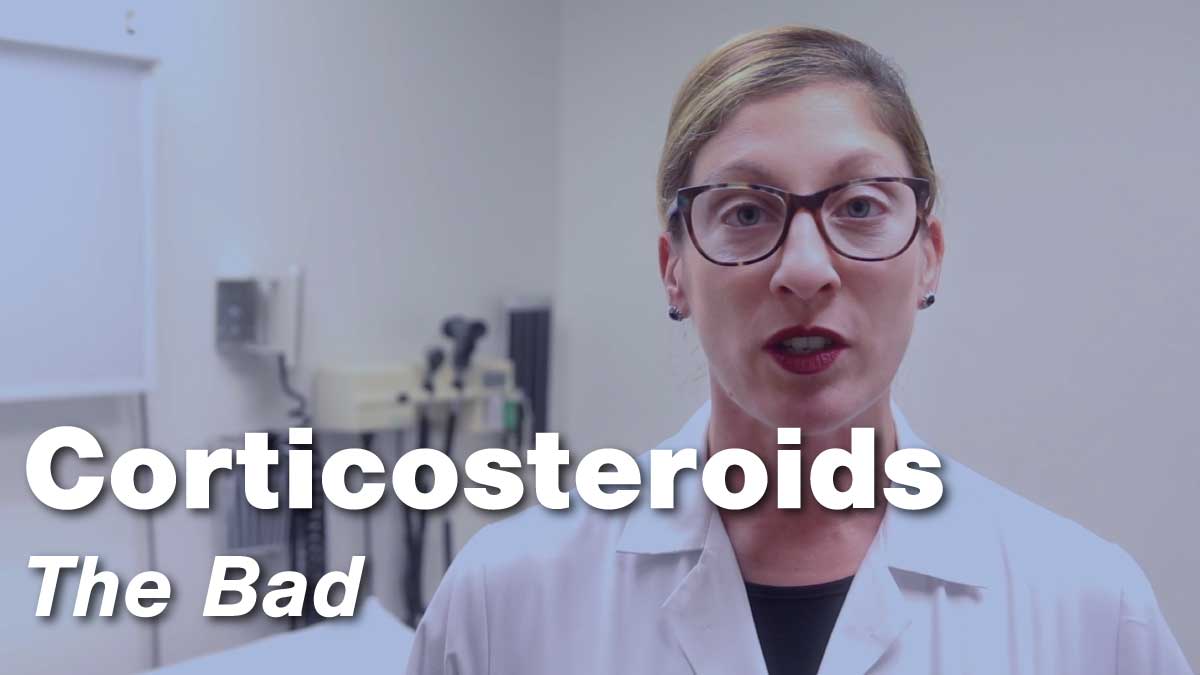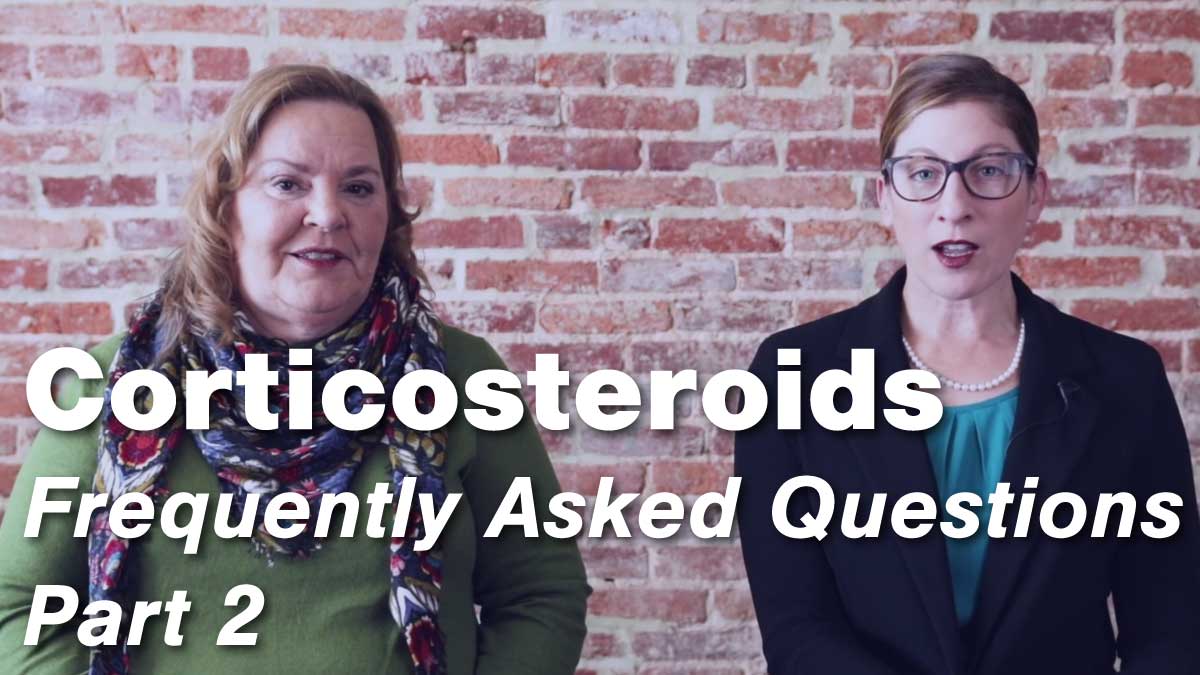The Bad Of Corticosteroids Johns Hopkins

Corticosteroids The Bad Featured Image Johns Hopkins Rheumatology While corticosteroids are a great tool for decreasing inflammation and allergic reactions, some patients may experience side effects. it is important to comm. Corticosteroids – the bad. while corticosteroids are a great tool for decreasing inflammation and allergic reactions, some patients may experience side effects. it is important to communicate with your doctor about any negative effects that you may experience. in this video, dr. rebecca manno explains what to look out for while taking.

Corticosteroids The Bad Johns Hopkins Rheumtv Corticosteroids – the bad. october 19, 2018 by johns hopkins rheumatology. while corticosteroids are a great tool for decreasing inflammation and allergic reactions, some patients may experience side effects. it is important to communicate with your doctor about any negative effects that you may experience. in this video, dr. rebecca manno. In this video, dr. rebecca manno explains what corticosteroids are, how they’re prescribed, and the benefits of taking them. corticosteroids – the bad while corticosteroids are a great tool for decreasing inflammation and allergic reactions, some patients may experience side effects. Low dose prednisone can cause weight gain, increased blood pressure, worsening diabetes, osteoporosis and increase risk of heart disease. thus, if you have one of these problems already or have other risk factors for these problems, then prednisone could make matters worse. however, many patients require prednisone in the range of 5 mg daily or. Prednisone is a corticosteroid with potent anti inflammatory effects. corticosteroids are a cornerstone of treating most types of vasculitis, and are often used in combination with other immunosuppressive medications. prednisone works very quickly, and is therefore used (often at high doses) at the time of initial diagnosis to bring vasculitis.

Corticosteroids What Makes Them So Beneficial Johns Hopkins Low dose prednisone can cause weight gain, increased blood pressure, worsening diabetes, osteoporosis and increase risk of heart disease. thus, if you have one of these problems already or have other risk factors for these problems, then prednisone could make matters worse. however, many patients require prednisone in the range of 5 mg daily or. Prednisone is a corticosteroid with potent anti inflammatory effects. corticosteroids are a cornerstone of treating most types of vasculitis, and are often used in combination with other immunosuppressive medications. prednisone works very quickly, and is therefore used (often at high doses) at the time of initial diagnosis to bring vasculitis. Corticosteroids work on your whole body, not just your joints. because of this, side effects can be very broad. report any unpleasant effects to your doctor. side effects include: glaucoma – elevated eye pressure which if not diagnosed can result in lower vision. fluid retention, swelling in your lower legs. high blood pressure. Corticosteroids can be extremely beneficial in decreasing inflammation and allergic reactions. in part one of this faq video, dr. rebecca manno and vicky ruf.

Corticosteroids What Makes Them So Beneficial Johns Hopkins Corticosteroids work on your whole body, not just your joints. because of this, side effects can be very broad. report any unpleasant effects to your doctor. side effects include: glaucoma – elevated eye pressure which if not diagnosed can result in lower vision. fluid retention, swelling in your lower legs. high blood pressure. Corticosteroids can be extremely beneficial in decreasing inflammation and allergic reactions. in part one of this faq video, dr. rebecca manno and vicky ruf.

Comments are closed.